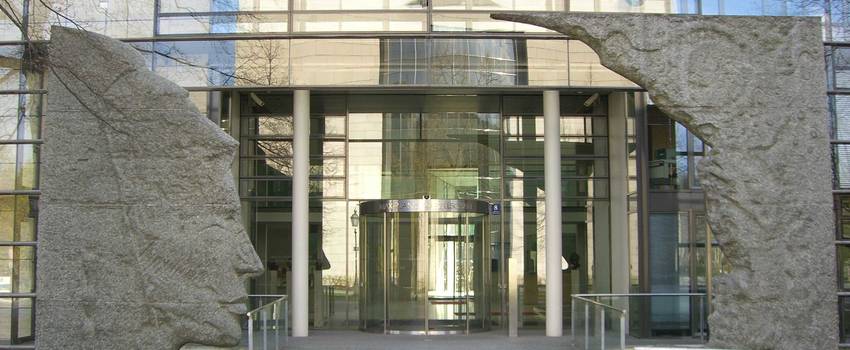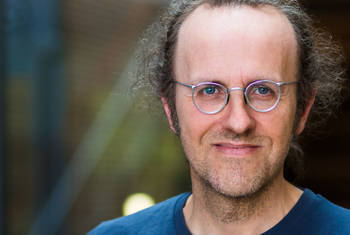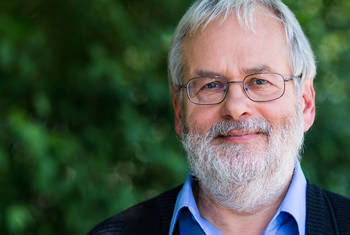Bernhard Schölkopf How Can We Use Machine Learning in the Search for Exoplanets?
Bernhard Schölkopf is Director of the Max Planck Institute for Intelligent Systems in Tübingen and the head of the Department for Empirical Inference. He studied physics, mathematics, and philosophy in both Tübingen (Germany) and London. Since 2002 he is an Honorary Professor at Technical University Berlin. Schölkopf’s main research interest concerns inference from empirical data and machine learning. He applies his research on machine learning to the exploration of exoplanets, that is planets beyond our solar system.
Area of Research
Machine Learning, Empirical Inference
since 2011
2001-2010
2000-2001
Group Leader
Biotech Startup Biowulf Technologies, New York
1999-2000
Researcher
Microsoft Research Ltd., Cambridge
1997-1999
Researcher
GMD (German National Research Center for Computer Science), Berlin
1997
PhD in Computer Science
Technical University of Berlin (Technische Universität Berlin)
1994
Diploma in Physics
University of Tübingen (Eberhard Karls Universität Tübingen)
1992
Master in Mathematics
University of London
- Leopoldina (German National Academy of Sciences)
- Association for Computing Machinery
- Bernstein Center for Computational Neuroscience (Tübingen)
- Bernstein Focus for Neurotechnology (Freiburg/Tübingen)
- Deutsche Mathematiker-Vereinigung
- Excellence Clusters CIN (Center for Integrative Neuroscience, University of Tübingen)
- German Association for Pattern Recognition
- Institute of Electrical and Electronics Engineers
- SimTECH (Simulation Technology, University of Stuttgart)
Prizes
- Gottfried Wilhelm Leibniz-Preis (2017)
- Royal Society Milner Award (2014)
- Annual Academy Prize, Berlin-Brandenburgische Akademie der Wissenschaften (2012)
- Guest Professor, ETH Zürich, Department Informatik (2012)
- Annual Max Planck Research Award (2011)
- Annual Brain Computer Interfacing Research Award (with Moritz Grosse-Wentrup) (2011)
- Posner Keynote Lecturer at the Neural Information Processing Systems Conference (2011)
- Inclusion in the List of ISI Highly Cited Researchers (2010)
- J. K. Aggarwal Prize of the International Association for Pattern Recognition (IAPR) (2006)
- Prize for the Best Scientific Project of the GMD (1998)
- Annual Dissertation Prize of the German Society for Computer Science (GI) for the Best German PhD in Computer Science (1998)
- Lionel Cooper Memorial Prize of the University of London - Awarded by the Colleges Constituting the University of London, for his M.Sc. with a Thesis in Algebraic Quantum Theory (1992)
Fellowships
- Professory Extraordinary, Department of Mathematical Science, Stellenbosch University (2010-2012)
- Honorarprofessor, Department of Mathematics and Physics, Tübingen University (2010)
- Honorarprofessor, Department of Computer Science, Technical University Berlin (2002)
- Studienstiftung des deutschen Volkes (1992-1997)
 © Maximilian Dörrbecker
© Maximilian Dörrbecker
Max Planck Society
"The Max Planck Society is Germany's most successful research organization. Since its establishment in 1948, no fewer than 18 Nobel laureates have emerged from the ranks of its scientists, putting it on a par with the best and most prestigious research institutions worldwide. The more than 15,000 publications each year in internationally renowned scientific journals are proof of the outstanding research work conducted at Max Planck Institutes – and many of those articles are among the most-cited publications in the relevant field." (Source)
Institute
Max Planck Institute for Intelligent Systems
"Our goal is to understand the principles of perception, learning and action in autonomous systems that successfully interact with complex environments and to use this understanding to design future systems. The Institute studies these principles in biological, computational, hybrid, and material systems ranging from nano to macro scales. We take a highly interdisciplinary approach that combines mathematics, computation, material science, and biology." (Source)
Map
Exoplanets are planets beyond our own solar system. Since they do not emit much light and moreover are very close to their parent stars they are difficult to detect directly. When searching for exoplanets, astronomers use telescopes to monitor the brightness of the parent star under investigation: Changes in brightness can point to a passing planet that obstructs part of the star’s surface. The recorded signal, however, contains not only the physical signal of the star but also systematic errors caused by the instrument. As BERNHARD SCHÖLKOPF explains in this video, this noise can be removed by comparing the signal of the star of interest to those of a large number of other stars. Commonalities in their signals might be due to confounding effects of the instrument. Using machine learning, these observations can be used to train a system to predict the errors and correct the light curves.
LT Video Publication DOI: https://doi.org/10.21036/LTPUB10261
Removing Systematic Errors for Exoplanet Search via Latent Causes
- Bernhard Schölkopf, David W. Hogg, Dun Wang, Daniel Foreman-Mackey, Dominik Janzing, Carl-Johann Simon-Gabriel and Jonas Peters
- arXiv preprint arXiv:1505.03036
- Published in 2015









